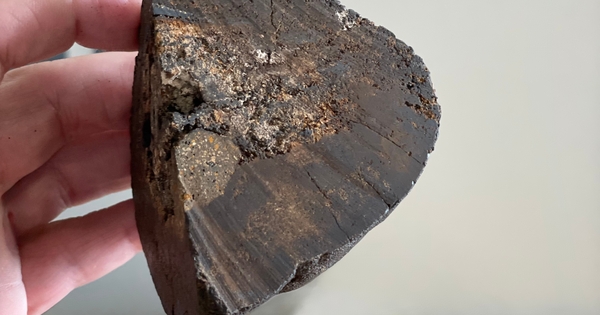A bipartisan bill aimed at fast-tracking deep-sea mining operations in U.S. waters has been introduced in Congress, marking a significant step toward reducing America’s dependency on foreign sources for critical minerals.
The legislation, formally known as the American Critical Minerals Exploration and Development Act, seeks to streamline the regulatory approval process for companies looking to extract minerals from the ocean floor within the country’s exclusive economic zone. The mo
...
A bipartisan bill aimed at fast-tracking deep-sea mining operations in U.S. waters has been introduced in Congress, marking a significant step toward reducing America’s dependency on foreign sources for critical minerals.
The legislation, formally known as the American Critical Minerals Exploration and Development Act, seeks to streamline the regulatory approval process for companies looking to extract minerals from the ocean floor within the country’s exclusive economic zone. The move comes as the U.S. attempts to secure domestic supply chains for materials essential to clean energy technologies, advanced electronics, and defense applications.
Representative John Curtis (R-Utah), one of the bill’s lead sponsors, emphasized the national security implications of the current mineral supply situation. “For too long, we’ve been dangerously dependent on China and other nations for minerals that power everything from smartphones to electric vehicles,” Curtis said during a press conference announcing the legislation. “The ocean floor contains vast deposits of these resources, and we need a regulatory framework that allows American companies to responsibly access them.”
The bill would establish a “one-stop” permitting process coordinated through the Department of the Interior, with a mandated 24-month timeline for application reviews. This represents a significant acceleration compared to the current system, which industry groups claim can take up to seven years for project approvals.
Deep-sea mining targets polymetallic nodules—potato-sized rocks rich in cobalt, nickel, copper, and manganese—that lie scattered across vast areas of the ocean floor. These minerals are crucial components in battery technology, renewable energy systems, and advanced electronics.
The global demand for these materials is projected to increase dramatically over the next decade. According to the International Energy Agency, the world may need up to 40 times more lithium and 20-25 times more nickel and cobalt by 2040 to meet clean energy goals. Currently, China controls approximately 60 percent of rare earth processing capacity worldwide and dominates the supply chains for many critical minerals.
Senator Maria Cantwell (D-Washington), who co-sponsored the Senate version of the bill, highlighted the economic potential. “This legislation creates a pathway for American companies to lead in a growing industry while ensuring strong environmental protections,” she said. “We can create thousands of good-paying jobs while securing the materials needed for our clean energy future.”
The bill includes provisions requiring companies to conduct comprehensive environmental impact assessments before mining operations can begin. It also mandates ongoing monitoring of marine ecosystems and requires restoration plans for affected areas. Additionally, it would allocate funding for scientific research on deep-sea habitats and potential environmental impacts of mining activities.
Despite these environmental provisions, the legislation has drawn criticism from some conservation groups. The Ocean Conservation Alliance called the bill “premature,” arguing that more research is needed on the potential ecological consequences of large-scale seabed mining before establishing an expedited approval process.
“The deep ocean remains one of the least understood environments on Earth,” said Dr. Emily Thornton, marine ecologist and director of the alliance. “We’re concerned about disrupting delicate ecosystems that may take decades or centuries to recover, if they recover at all.”
Industry representatives, however, maintain that the bill strikes an appropriate balance. Michael Ramirez, CEO of DeepBlue Resources, one of several U.S. companies developing seabed mining technology, expressed support for the legislation. “This creates a predictable regulatory pathway while maintaining rigorous environmental standards,” Ramirez said. “American companies are developing methods that minimize disruption to marine habitats, and this bill enables us to advance those technologies.”
The legislation comes amid growing international competition for seabed mining rights. China, Russia, and several European nations have already secured exploration licenses in international waters through the International Seabed Authority (ISA), while the U.S. remains outside this framework as a non-party to the United Nations Convention on the Law of the Sea.
The bill’s sponsors argue that developing domestic resources within U.S. waters would provide greater security and environmental oversight than relying on minerals mined under potentially less stringent regulations elsewhere.
Economic analysts suggest the potential market for seabed minerals could reach $15 billion annually by 2030. Several U.S. technology companies, including those in the electric vehicle and renewable energy sectors, have expressed interest in securing domestically sourced materials.
The legislation now moves to committee review in both chambers of Congress, with hearings expected to begin next month. While its passage remains uncertain in a divided Congress, the bipartisan nature of the bill suggests growing recognition of critical minerals as a national priority that transcends partisan divides.


